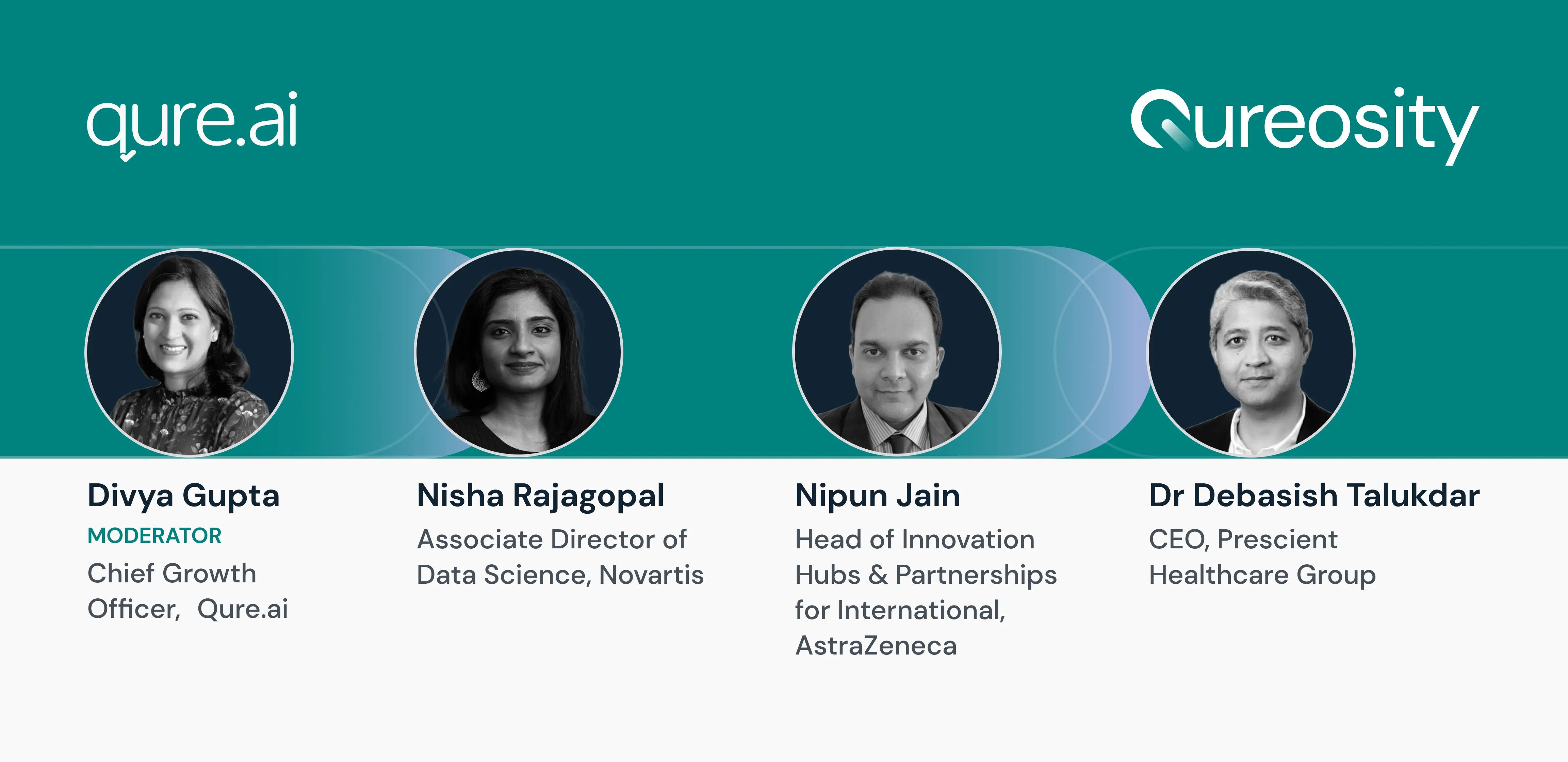Summary
Back
Artificial intelligence (AI) has great potential to improve the pharmaceutical industry, from aiding with drug discovery and clinical development to enhancing patient care and outcomes. This webinar explores the current state of AI adoption in the pharmaceutical sector, discussing the potential applications, challenges, and prospects for the future. The discussion emphasizes the importance of collaboration among stakeholders, ethical considerations, and the need for re-skilling to facilitate the effective implementation of AI in healthcare and life sciences.
Introduction
The webinar brings together a diverse panel of experts from the pharmaceutical industry, each offering unique insights based on their professional backgrounds. Nisha Rajagopal, Associate Director of Data Science, Novartis, combines her expertise in biology, statistics, and machine learning to drive innovation in drug development. Nipun Jain, Head of Innovation Hubs & Partnerships, Astrazeneca, focuses on fostering collaborations with healthcare ecosystem players to identify and scale AI solutions. Dr. Debasish Talukdar, CEO of Prescient Healthcare Group, shares his perspective on how AI is transforming the industry and its potential impact on consulting and knowledge services.
Key Highlights
- Current state of AI adoption: The pharmaceutical industry has been exploring and implementing AI for some time, with a focus on narrow AI applications for specific tasks. While there is optimism about AI's potential, the adoption process is cautious due to the industry's highly regulated nature. Companies are evaluating AI solutions with a healthy balance of opportunity and skepticism, ensuring that any implementation is well-understood, explainable, and creates real-world value.
- Potential applications: AI has the potential to optimize various processes in the pharmaceutical industry, from early drug discovery to patient care. In drug discovery, AI can help identify new drug targets, predict compound efficacy, and optimize lead compounds. In clinical development, AI can assist in interpreting medical images, identifying patients at risk of certain diseases, and supporting clinical decision-making. AI can also be used to create hyper-personalized content for patient education and engagement.
- Challenges and considerations: Implementing AI in healthcare requires addressing ethical concerns, data privacy, transparency, and explainability. Effective collaboration among stakeholders, including industry players, regulators, healthcare providers, and innovators, is crucial for the successful adoption of AI. The pharmaceutical industry must ensure that AI decisions are not made in a black box and that any application of AI is done with relevant guardrails in place to prevent unintended side effects.
- Re-skilling and cultural shift: Bridging the gap between AI technology and its practical application in the pharmaceutical industry requires re-skilling and a creative mindset shift. Cross-functional teams with a shared vocabulary and the ability to understand each other's domains are essential to implement AI solutions effectively. While not everyone needs to be an AI expert, a broad understanding of AI's capabilities, limitations, and ethical considerations is necessary to identify appropriate use cases and drive adoption.
Conclusion
The future of AI in the pharmaceutical industry is promising, with potential applications in improving R&D productivity, enhancing decision-making processes, and ultimately benefiting patient outcomes. As AI adoption continues to increase, the industry must focus on addressing ethical concerns, ensuring transparency, and fostering collaboration among all stakeholders in the healthcare ecosystem. The success of AI implementation will depend on the industry's ability to optimize existing processes, augment human capabilities, and create new value through innovative solutions. By embracing AI with a cautious yet optimistic approach, the pharmaceutical industry can harness the power of this transformative technology to drive better healthcare outcomes for patients worldwide.
Book a meeting with us at ASCO!
